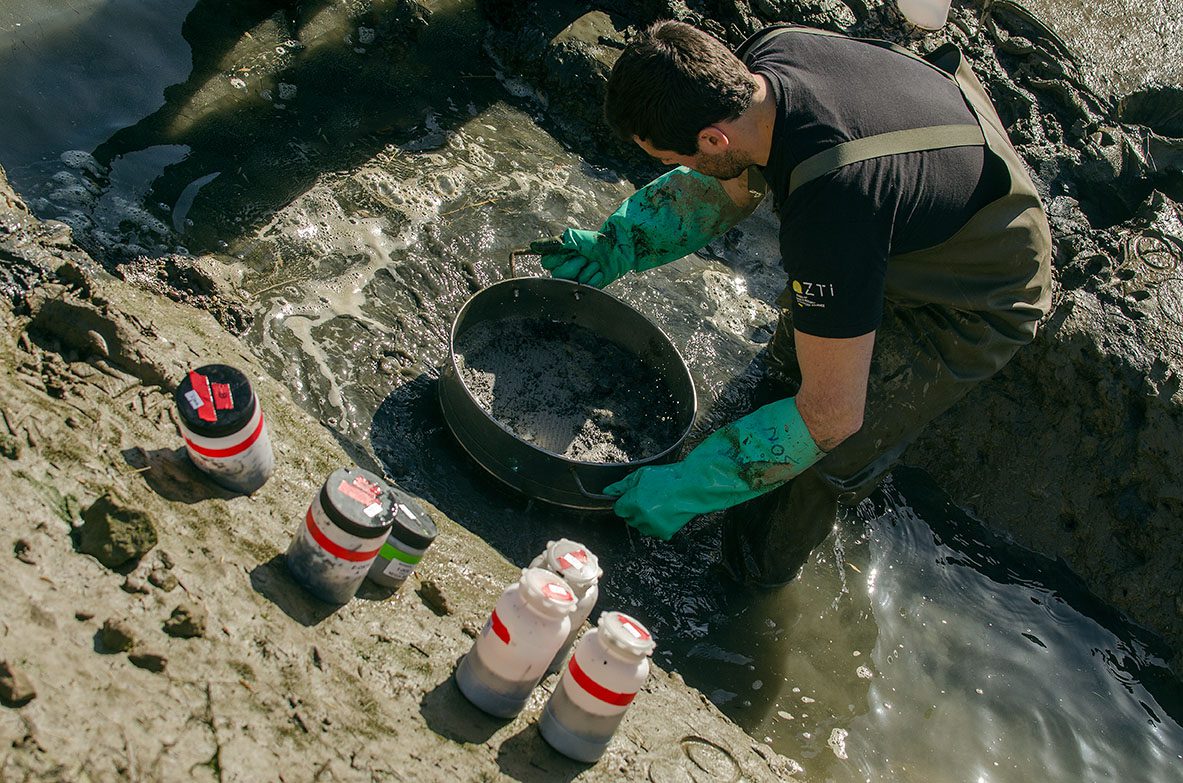A pioneering study warns of structural failures in marine protection and calls for urgent action to prevent irreversible damage to ecosystems.

The research is part of the European GES4SEAS project, funded by the European Union’s Horizon Europe research and innovation programme and coordinated by the AZTI technology centre.
More than a decade after the entry into force of the Marine Strategy Framework Directive, European seas are still far from achieving the objective of Good Environmental Status. Marine biodiversity continues to show signs of deterioration and human activities continue to exert considerable pressure on ecosystems.
This has been demonstrated by an international research team which, for the first time, has carried out a comprehensive and harmonised assessment of the environmental status of all marine waters in the European Union.
The study, published in the high-impact scientific journal Conservation Letters, provides a detailed assessment of the degree of compliance with EU environmental objectives in the marine environment and concludes that most ecosystems still do not meet the desired levels of ecological health established by the legislation.
The research analyses the 11 descriptors that define the environmental status of the marine environment, according to the aforementioned European directive — from biodiversity and fisheries to marine litter and underwater noise — and integrates this information for the first time into a comprehensive assessment. The results show that human pressures—such as overfishing, pollution, invasive species and climate change—continue to act cumulatively, without an effective and coordinated response.
‘We are not simply facing a lack of progress. We are losing marine biodiversity on a large scale, while current management tools are failing to halt the deterioration,’ warns Stelios Katsanevakis, Professor of Marine Sciences at the University of the Aegean and co-author of the study.
While regions such as the Baltic Sea and the North Sea have better levels of monitoring and governance—thanks to international conventions such as HELCOM (Helsinki Convention for the Protection of the Baltic Sea) and OSPAR (Oslo-Paris Convention for the Protection of the North-East Atlantic)— other areas, especially in the eastern Mediterranean, suffer from significant data gaps, which seriously limits the capacity for action.
‘Where there is regional cooperation and investment in science, there is progress. But in many areas we are still sailing blind,’ stresses Athanasios Nikolaou, lead author of the study and PhD student at the University of the Aegean.
Since its entry into force in 2008, the Directive requires Member States to assess the environmental status of their marine waters every six years and to design plans of measures to achieve or maintain Good Environmental Status. The analysis shows that, although progress has been made in some regions, the quality of data and the implementation of measures varies significantly between countries and sea basins.
‘This study confirms what the scientific community has been pointing out for years: the EU needs to strengthen its marine governance, rely more on scientific evidence and act in a coordinated and urgent manner if it wants to protect its seas,’ says Ángel Borja, AZTI researcher, coordinator of the GES4SEAS project and co-author of the study. ‘The health of our marine ecosystems cannot depend on geographical chance or the level of political commitment of each country,’ adds Dr Borja.
Spain, among the regions with the highest pressures and worst environmental indicators
The analysis also provides a clear picture of the state of the marine ecosystems surrounding Spain. In particular, the Alboran Sea and the western Mediterranean are among the ecoregions with the highest levels of pressure and worst environmental indicators.
For its part, the western Mediterranean, which includes a large stretch of the Spanish coastline, has the lowest ecological status index in Europe, despite having a relatively comprehensive assessment. This suggests the need to intensify restoration and conservation efforts in this area.
In the Atlantic, the waters of the south-western European shelf — also under Spanish jurisdiction — benefit from greater regional coordination under the OSPAR Convention, although the study does not provide specific disaggregated data for this area.
These results underscore the importance of strengthening the protection of marine ecosystems in Spanish waters through ambitious and sustained actions, supported by quality data and regional cooperation.
A call to action to improve the health of European seas
The research team urges European and national institutions to strengthen environmental monitoring, improve data quality and coverage, and implement coherent policies based on scientific evidence. The conservation of marine biodiversity is not only key to ecological balance, but also to ensuring the services that oceans provide to society: from sustainable fishing to climate regulation, blue jobs and the health of coastal ecosystems. In this regard, the European Commission’s Directorate-General for the Environment has already contacted the authors to present this met




